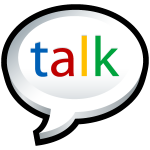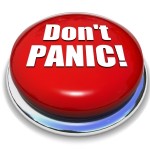Posted on 08 August 2013 Comments (0)
Tags: Anna's Posts, Attitude, Business Etiquette, Career Builders, communication, Culture, Interviewing skills, Leadership, Personal Development, Speaking Skills, Voice
 So many times we forget to ask for what we want without sounding like we don’t deserve it or are entitled to it.
So many times we forget to ask for what we want without sounding like we don’t deserve it or are entitled to it.
Here are some guidelines to help ensure that an outcome works in your favor:
1. Write down what you want – be specific
2. Get an outside perspective of someone you trust
3. Role play – practice
4. Do not be discouraged if the answer is no – find out why in a non-defensive way
Asking for what you want is critical to success in life. People aren’t mind readers. Often, just asking will help you get what you’re looking for.
Also, when you ask for what you want and the outcome is not what you desired, it could give you an opportunity to go a in different direction and get something better!
 Actress, Andie MacDowell, and romantic interest of Hugh Grant in Four Weddings and a Funeral in Sunday NYT, says: “If you carry around anger and ugly emotions your face will show it.” She calls it keeping control of her monkey mind.
Actress, Andie MacDowell, and romantic interest of Hugh Grant in Four Weddings and a Funeral in Sunday NYT, says: “If you carry around anger and ugly emotions your face will show it.” She calls it keeping control of her monkey mind.
I also believe your face will show sadness, unfriendliness and friendliness. Unfortunately, the majority of those in today’s business world are not showing the face of engagement.
Begin the day with an attitude of excitement while keeping in mind that the purpose is to have a happy day. If you are not sure what your face is showing, stop by a mirror and take a quick. What does it say? Is that what you want it to say?
 I just finished watching Roger Love onYouTube talking about how to eliminate “ahs and ums” when speaking. These fillers become annoying and distract the listener. My thoughts have always been to stop and breathe. Saying nothing is better than a constant stream of fillers.
I just finished watching Roger Love onYouTube talking about how to eliminate “ahs and ums” when speaking. These fillers become annoying and distract the listener. My thoughts have always been to stop and breathe. Saying nothing is better than a constant stream of fillers.
These are Roger‘s recommendations:
• Use full sentences.
• Connect your words together.
• Only stop for commons and periods.
• Do not make a sound between sentences.
Posted on 08 June 2013 Comments (0)
Tags: Anna's Posts, Appearance, Business Etiquette, Civility, communication, Culture, Interviewing skills, Leadership, Media, Men's Appearance, Women's Appearance
 Eye contact is always important in these situations:
Eye contact is always important in these situations:
• When first meeting a person, good eye contact gives an instant connection. In some cases it is how you will be remembered.
• When you are presenting, eye contact helps you engage each member of the audience. Even if you cannot see them, they can see you.
• When you are having a very intense conversation, whether sad or happy, the impact of it will be felt with serious eye contact.
Often, when I am working with clients on their interviewing skills – it is their body language that negates their professional presence. The On-Line University staff writers have written a blog on this topic. It emphasizes how critical body language is in communications. It points out how perceptions are created: 82% with the eyes, 11%, ears, 7%, smell, taste and touch.
Go to http://www.onlineuniversities.com/body-language to view a graph and article that will give you tips on how to insure that those around you see you as a confident person and to comfirm that you mean what you say with your voice and body language.
 Interviews fall into the same category as public speaking. We can be extremely nervous while at the same time, we want folks to know that we are brilliant and belong in that role. Even Jodie Foster, writer, actor and philanthropist hated the audition process, which is similar to an interview.
Interviews fall into the same category as public speaking. We can be extremely nervous while at the same time, we want folks to know that we are brilliant and belong in that role. Even Jodie Foster, writer, actor and philanthropist hated the audition process, which is similar to an interview.
Breathing is the number one physical action you can take that will steady and help you exude confidence in an interview as well as help you get through a panic attack, should one occur.
Secondly, you want to practice how you will talk in the interview. Remember what it is about your background, life and practical business experiences that puts you over the top for the position.
Keep in mind, though, that a “gotcha” question might be asked. If so, repeat the question and breathe deep to settle yourself. These tips will bring you closer to getting the job you are meant to have.
 All politics aside, Secretary of State, Hillary Clinton, showed her command presence in the way she handled the four plus hours of grilling by the Senate. (We all understand the gravity of that situation.)
All politics aside, Secretary of State, Hillary Clinton, showed her command presence in the way she handled the four plus hours of grilling by the Senate. (We all understand the gravity of that situation.)
The piece that impressed me and many others (listening to the commentaries) is the discussion around what we were going to do to make sure this does not happen again. A true leader handles him/herself with composure always going back to seeking a solution to fix the problem.
What if the most respected global companies only finger pointed and didn’t focus on the solution? Nothing would get resolved.
These are words that are useless but commonly used. You can identify a filler word if it’s heard but rarely seen written out. These words include um, ah, er, ok, etc., and they dilute the impact of your point.
Being aware of using these words is the first step to eliminating them. Start with counting how many you use in a day and begin to reduce them. Speaking slower while allowing your thoughts to catch up will decrease the use of these words. So will taking the time to pause and take a breath.
 These are the five critical questions that need to be answered to guarantee you will be a front runner for the position you are interviewing for:
These are the five critical questions that need to be answered to guarantee you will be a front runner for the position you are interviewing for:
1. What skills do you bring to the position that no one else possesses?
2. What is your expertise and is there a proven record of successful accomplishments?
3. What does the position need?
4. What critical element is required and do you meet that requirement?
5. How can you turn any resume gap into a positive?
Being able to provide answers to these questions will ensure that you will be a front runner for any position you interview for.
 So many times we forget to ask for what we want without sounding like we don’t deserve it or are entitled to it.
So many times we forget to ask for what we want without sounding like we don’t deserve it or are entitled to it.









